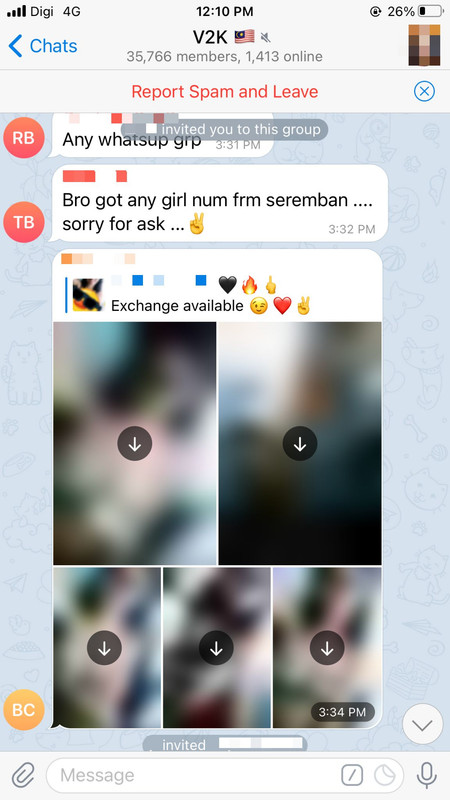Is digital censorship becoming the new norm, particularly in regions grappling with complex socio-political landscapes? The recent ban of TikTok, Telegram, and 1XBet in Somalia underscores a growing trend of governments using digital tools to control the flow of information and regulate online activities, raising critical questions about freedom of expression and access to information.
The decision by Somalia to block these platforms, citing the need to curb indecent content and propaganda, has sent ripples through the digital world. While concerns about inappropriate material and the spread of harmful content are legitimate, the move raises significant questions about the balance between public safety and the fundamental rights of citizens. Telegram, in particular, has become a crucial platform for communication and information sharing in many parts of the world, including Somalia. Its ban could severely limit access to news, updates, and the ability of individuals to connect with each other.
| Subject | Details |
|---|---|
| Topic | The recent ban of TikTok, Telegram, and 1XBet in Somalia and its implications. |
| Location | Somalia |
| Banned Platforms | TikTok, Telegram, 1XBet |
| Reason for Ban | To limit the spread of indecent content and propaganda. |
| Entities Utilizing the Platforms | Al-Shabab, Entrepreneurs, General Public |
| Potential Impact | Limited access to news, updates, and communication; Restrictions on business activities. |
| Related Issues | Freedom of expression, censorship, regulation of online content. |
| Relevant Websites | VOA News |
The government's actions are not without context. Somalia is a nation grappling with the ongoing threat of al-Shabab, a militant group that has been known to utilize online platforms for propaganda and recruitment. In such circumstances, it's understandable that authorities would seek to control the narratives circulating online. However, the blanket ban on these platforms impacts a wide spectrum of users, including those who rely on them for legitimate purposes.
The situation in Somalia exemplifies a broader global phenomenon: the increasing tension between the desire to regulate the digital space and the importance of protecting freedom of expression. Countries worldwide are grappling with the complexities of this issue, seeking to strike a balance that protects citizens from harm while preserving their right to access information and engage in open discourse. The challenge lies in finding solutions that are targeted and effective, rather than broad and restrictive.
Telegram, for instance, has become a lifeline for many, serving as a primary means of communication and news dissemination. Channels like SRTV Somali use Telegram to share the latest news from the country and the region, acting as a crucial source of information for many. The ban of Telegram thus cuts off a significant portion of the population from vital news and updates, creating information vacuums that can be easily filled with misinformation and propaganda.
It is important to consider the economic implications. The ban on online betting sites like 1XBet, while seemingly straightforward, can impact local businesses and individuals. This has the potential to stifle economic activities, push these activities into the shadows, and create further challenges for the government.
The spread of indecent content is often cited as a key reason for bans such as these. While the concern for harmful content is valid, the question arises of how to effectively address it without infringing on basic rights. The online landscape is vast and complex, and no single solution works everywhere. This is not a problem unique to Somalia, and the world is still grappling with these issues.
The ban on TikTok, meanwhile, has implications related to the cultural exchange, particularly amongst the youth. Platforms like TikTok are used for expression, creativity, and community building. Shutting down access to these platforms means silencing a generation and preventing the exploration of new forms of art and expression.
The case in Somalia, coupled with the increasing emphasis on digital security by countries across the world, underscores the need for careful consideration of policies that regulate online platforms. International organizations, human rights groups, and tech companies all have a role to play in promoting responsible practices and ensuring that such actions don't violate fundamental human rights.
There is a need for open discussion about these measures, including consultations with civil society groups, media organizations, and, most importantly, the public. This would provide a platform for diverse perspectives to be heard and for nuanced approaches to emerge. It's crucial that any regulations are clear, transparent, and applied fairly, without targeting specific groups or viewpoints.
The situation in Somalia is far from isolated. Similar debates are raging in various other countries, each navigating its own challenges and complexities. The common theme, however, is the balancing act between protecting national security and promoting the free flow of information. The global community needs to work together to define standards and best practices that uphold human rights.
The impact of these bans extends beyond simple access to entertainment or business opportunities. They have ramifications for education, political participation, and the overall societal fabric. Governments have a responsibility to protect their citizens, but they also must recognize the importance of a free and open internet. This is essential for democratic societies to thrive.
As technology continues to evolve, and the digital landscape becomes ever more intertwined with our daily lives, the need for a thoughtful, considered approach to regulation is more critical than ever. The choices made today will help shape the future of information, freedom, and expression for generations to come.



